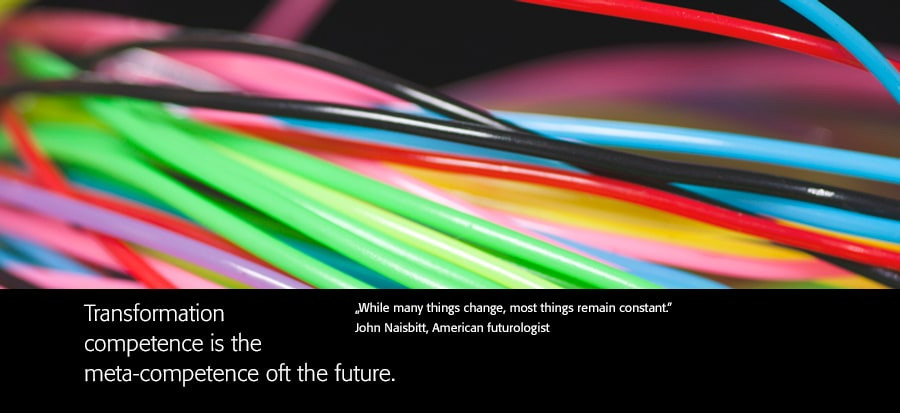

08.12.2016
Not Merely a Question of Technology: the Challenges of Digitisation Facing Corporate and HR Development.
Reflections on the occasion of the discussion event entitled “Responsibility in a new Era. Digitisation of Economy” (Verantwortung in einer neuen Ära. Die Digitalisierung der Wirtschaft) at the Catholic academy DIE WOLFSBURG in Mülheim an der Ruhr in October 2016.
Digitisation is unstoppable now. We have long since been on our way to Smart Factory, Internet of Things and Industry 4.0. The question whether we participate in digital revolution or not does not arise, because we are already deeply enmeshed. Our streets have seen the first self-driving cars, while machines order spare parts on their own, fridges order milk, and in a Beijing temple, a robot monk tries to give visitors an understanding of faith.
What does all this mean for us? Structural changes are nothing new and technological advances have often unsettled people in the beginning. So, what is different this time?
On the one hand, it is certainly speed, complexity and globality that frighten many people, because global networking is no longer transparent and comprehensible. Moreover, having regard to the collected data amounts und self-learning robots, the question of responsibility arises, both regarding legal responsibility and moral criterions. During the discussion event, Ulrich Grillo, President of the Federation of German Industries (Bundesverband der Deutschen Industrie), explicitly emphasised that ethical principles must be paramount to technological progress, as only people, not machines, can assume responsibility.
Digitisation as a keyword covers a lot of topics and aspects we can controversially discuss at great lengths. Thus, at this point, I put focus on the potential meaning of digitisation for corporate and HR development.
Chances and dangers of Deskilling
Deskilling means the elimination of the need for skilled workers for specific tasks as a result of new technologies. In future, robots can take on more and more activities previously done by trained staff, which is likely to lead to some job losses. However, will this really result in deserted factory halls?
You can also regard digitisation positively and primarily as a new form of communication and production, as formulated by Dr. Overbeck, bishop of Essen, at the Catholic academy. This would mean that labour is undergoing a changing process as to quantity and quality, but not that man makes himself redundant.
Certainly, we will see a development of new job profiles, and companies will have to call themselves into question and change their views. However, this alone is nothing new and no need to worry.
Digitisation as a leadership and cultural topic
The relevant technology is already largely available but it takes more to develop successful products and services from intelligent technology. Software is one thing, human ideas and good teamwork the other. For these reasons, it is no “horror scenario” for me as a Corporate and HR Developer, but an exciting leadership and cultural topic! In many companies, digitisation will result in reorientation, readjustment and reorganisation. This requires intensive support and training of employees. In many cases, the relational structure between employer and employee will be redefined. Finally, less and less people will work at the same time and at the same location. Technology creates new opportunities, which in turn requires appropriate rules for work processes and management strategies.
If we are able to handle artificial intelligence without fear and understand the digital age as opportunity for the business world too, then companies and their employees will be able to actively and creatively adjust to developments and keep pace with them!


